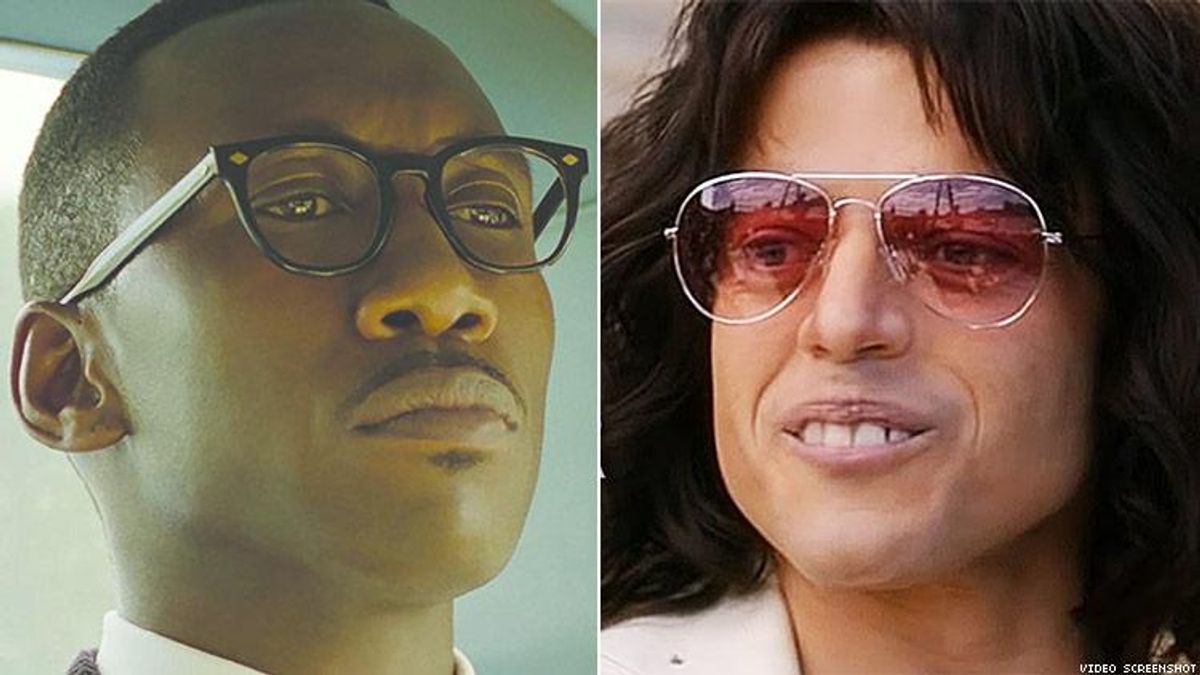The Golden Globes ceremony Sunday night provided ample recognition for the LGBTQ community -- but to some observers, not all of it was cause for celebration.
From the multiple nominations for the transgender-led FX drama Pose to out actor Ben Whishaw's win for Best Performance by an Actor in a Supporting Role in a Series, Limited Series or Motion Picture Made for Television, the awards show's numerous queer moments led The Advocate to deem the 2019 Golden Globes the "queerest yet."
Several queer characters also garnered their portrayer awards, including Sandra Oh's Eve Polastri from Killing Eve, Darren Criss's Andrew Cunanan from American Crime Story: The Assassination of Gianni Versace, and Olivia Colman's Queen Anne from The Favourite. With so many queer films and television shows recognized by the Hollywood Foreign Press Association, the night should have been an overwhelmingly positive event for the LGBTQ community.
However, some of the night's most high-profile queer wins drew controversy rather than acclaim.
The awards for Best Motion Picture - Drama and Best Motion Picture - Comedy -- arguably the Globes' two most prestigious honors -- went home with the producers of Bohemian Rhapsody and Green Book, respectively. Both biopics tell the stories of real-life queer musicians, but the films' portrayal of their main characters generated a heated response on social media, especially after their wins Sunday night.
Bohemian Rhapsody -- a biography of Queen's closeted bisexual and HIV-positive front man Freddie Mercury -- garnered the most controversy. While a substantial box office success ($193,673,825 as of January 6), the film received mixed reviews from critics, with many deeming it a hollow biopic.
The movie's depiction of Mercury's personal life and sexuality was especially criticized as inauthentic, with Variety's Owen Gleiberman writing, "It treats Freddie's personal life -- his sexual-romantic identity, his loneliness, his reckless adventures in gay leather clubs -- with kid-gloves reticence, so that even if the film isn't telling major lies, you don't feel you're fully touching the real story either."
The film's positioning of Mercury's queerness as a mostly negative aspect of his life and warped portrayal of his bisexuality in addition to claims of "straight-washing" have caused some queer audience members distress. Some took to Twitter to criticize the film's reception as an example of brave queer storytelling
While the film was met with little critical enthusiasm, Rami Malek garnered acclaim for his portrayal of Mercury. However, the AIDS activist group ACT UP New York was quick to note that Rami Malek failed to mention AIDS in his acceptance speech for Best Actor in a Motion Picture - Drama.
Others, including bisexual actress Evan Rachel Wood, have pointed out that the win for Bohemian Rhapsody is problematic in the #MeToo era, as its director, Bryan Singer, has faced many accusations of sexual assault throughout his career.
Green Book met with similar controversy Sunday night for its portrayal of Don Shirley, a black, queer jazz musician. The film depicts the friendship that develops between Shirley and his bodyguard Frank Anthony Vallelonga as Shirley embarks on a concert tour in the Deep South of the 1960s.
The film, billed as a comedy-drama, has been criticized for portraying racism for laughs. While some may attempt to market the film as an honest representation of a queer person of color, it is important to note that the screenplay -- which won a Golden Globe -- was cowritten by Vallelonga's son and criticized by Shirley's family as a "symphony of lies." Rather than tell the story from the point of view of a queer person of color, the film orients itself from the point of view of a straight white man.
Some of the social media uproar also stemmed from Bohemian Rhapsody and Green Book winning over films deemed more truly queer -- The Favourite and Can You Ever Forgive Me?


















































































